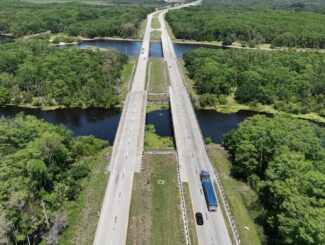By Do Nam, Sr. Traffic Operations Engineer, WSB
Construction operations on roadways disrupt normal traffic flow and generate undesirable delay. As traffic continues to increase throughout many metro areas, the Federal Highway Administration has been encouraging DOTs to be more proactive in their maintenance of traffic during construction.
Good construction staging provides safe and efficient traffic operations throughout a project to minimize impacts on the community during construction. WSB has begun development of traffic models that simulate the flow of traffic under different staging scenarios. These traffic simulation models consider all available routes, how construction will impact these routes and how much additional time this will add for commuters. These models are being used to determine if there are improvements that need to be made on any surrounding routes to allow for better operations throughout construction.
This new approach is more proactive than past construction staging methods and is based upon data. By modeling actual construction conditions, we’re able to pinpoint where potential challenges may occur during construction and how to avoid them. Below is a list of potential benefits of construction staging and maintenance of traffic modeling using traffic simulation.
The benefits of advanced traffic simulation for construction staging and maintenance of traffic
- By understanding what the impacts to the community are, we can be more proactive in mitigating them.
- If we better understand what routes traffic will use, we can ensure that traffic controls are set up to accommodate additional traffic volumes.
- Limit changes can be evaluated.
- Informs decisions on critical maintenance items.
- Provides a public engagement tool for cities and residents.
Through advanced traffic simulation technology, we’ve been able to enhance construction staging plans resulting in better projects.

Do has been a civil engineer in the transportation field for over 25 years. His experience includes modeling, operational analysis, design and Intelligent Transportation Systems (ITS) of large-scale transportation projects in both the United States and Qatar. Do has successfully managed over 30 major transportation and research projects utilizing traditional macroscopic travel demand forecasting modeling and state-of-the-art microscopic traffic simulation modeling techniques.
dnam@wsbeng.com | 763.760.8090

